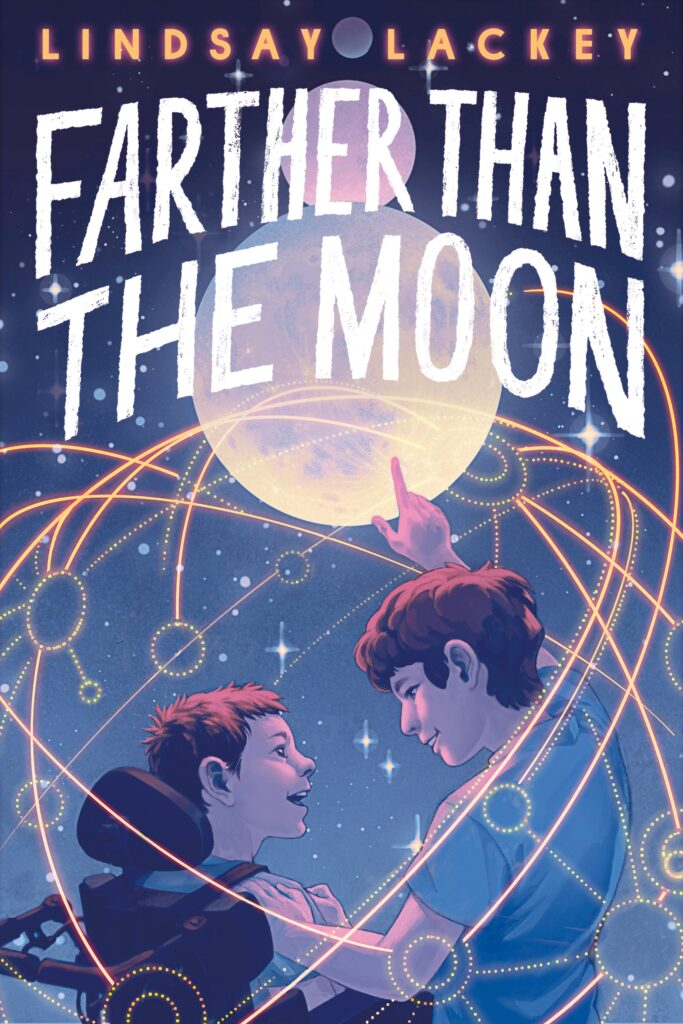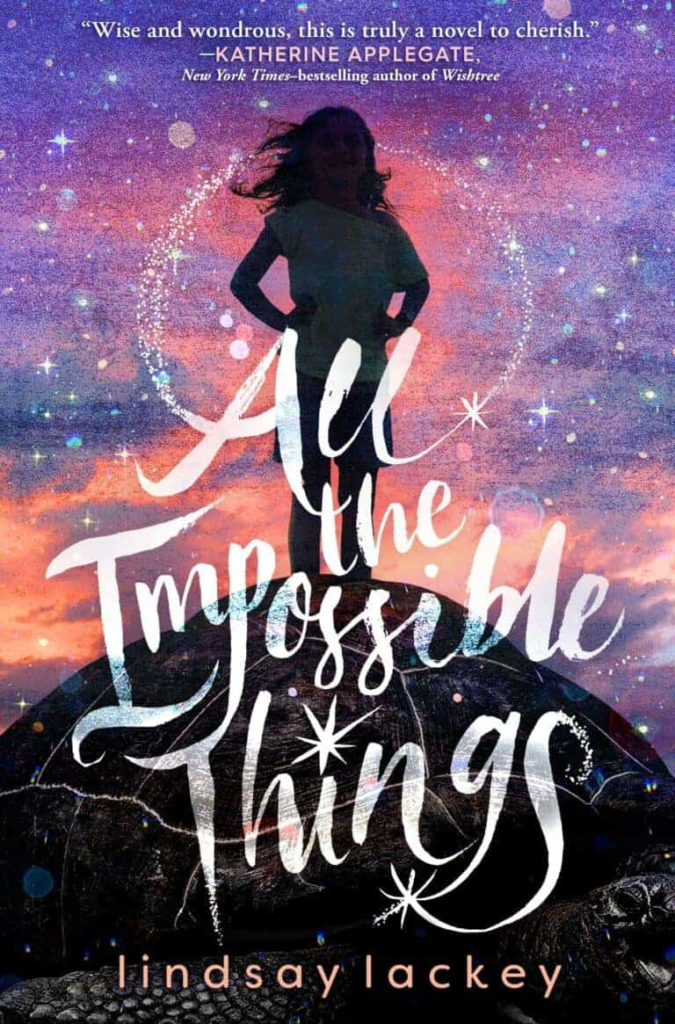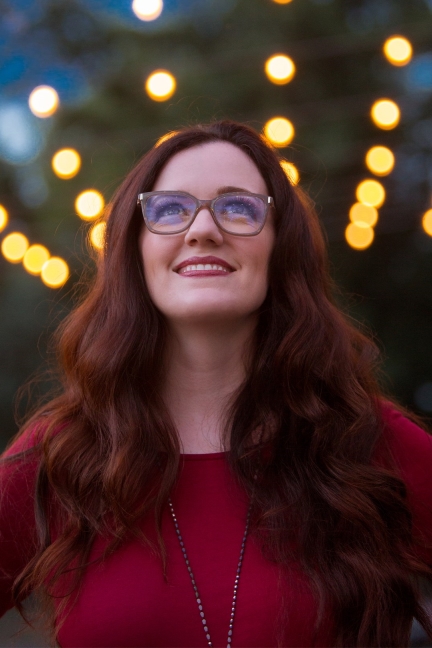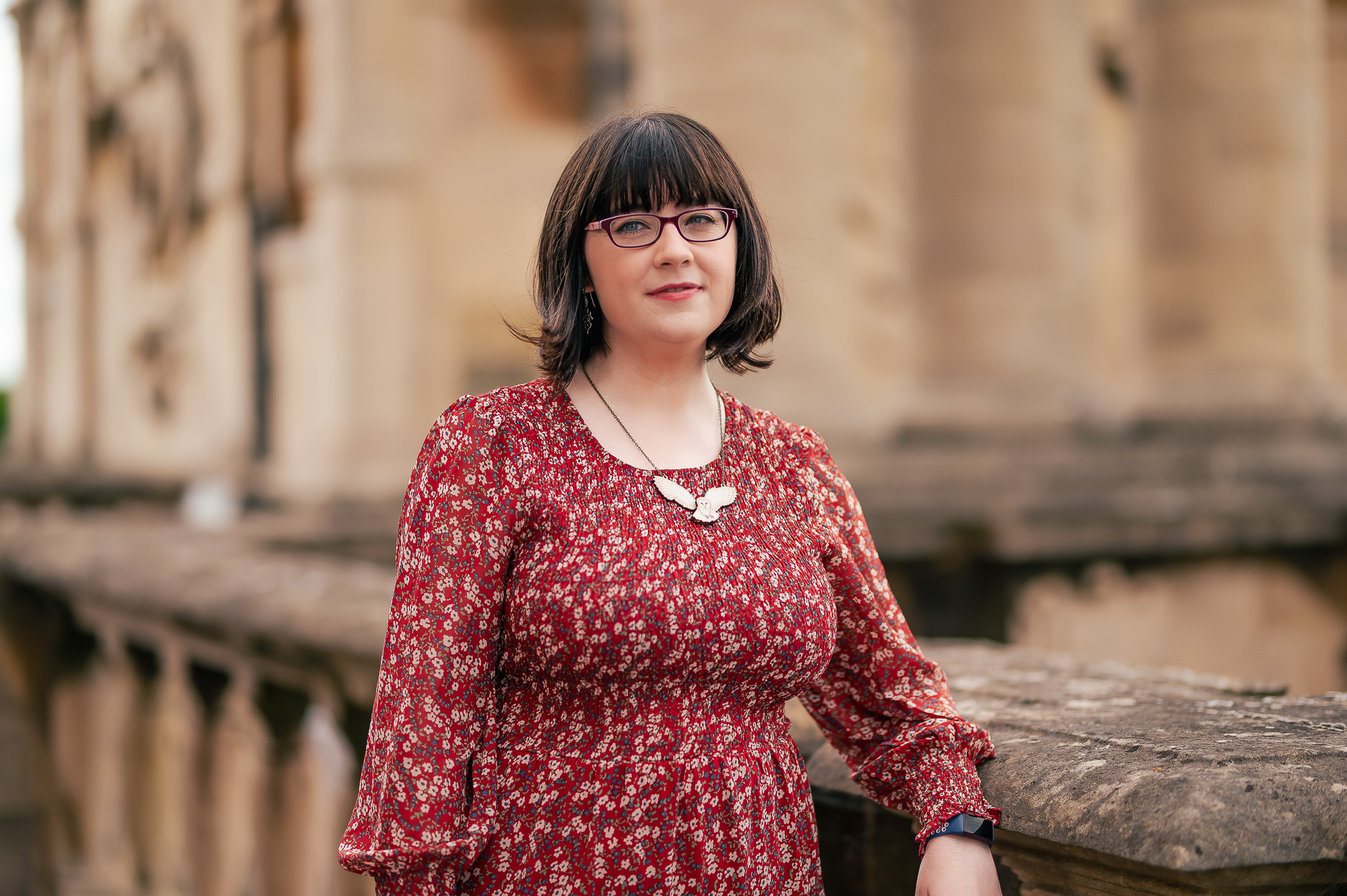Lindsay Lackey is an author of middle grade fiction and former library services worker. She was born in Colorado, but now lives in the San Francisco Bay Area with her husband and their spoiled dogs. Her debut novel, All the Impossible Things received critical acclaim. Her second novel, Farther Than the Moon, comes out September 19th!
Thank you so much for joining us, Lindsay! Let’s dive right into our questions.
Can you tell us a little bit about yourself and your books?
Thank you for inviting me! I am the author of two middle grade books: All the Impossible Things, about a girl in foster care who accidentally causes tornadoes when she’s upset; and Farther Than the Moon, my upcoming novel about a boy who wants to be an astronaut, but doesn’t want to leave behind his younger, space-loving brother who has cerebral palsy.
A few fun facts about me: I grew up in Colorado Springs, but I’ve never been skiing. I once swam through shark-infested waters in South Africa and accidentally ended up on the wrong side of a penguin preservation. And I talk to my dogs and my cat like they are humans.
I read on your website that when you were a child your mom got you a blank hardback book for you to write one of your stories in so you would feel like a published author. How did you feel holding the first copies of your debut novel, All the Impossible Things?
You know in movies, when somebody’s dream comes true and everyone gathers around them and cries and hugs and says they knew it would happen? It was like that, except I was home alone and my dog was a little freaked out by the weird crying-laughing sounds I was making. I had planned to wait for my husband to get home from work so he could share in my joy, but I couldn’t wait. I just ripped that box open then stared at it with tears streaming down my face for about ten minutes.
What inspired you to write your new novel, Farther Than the Moon?
In a weird twist of fate, I happened to grow up knowing a real astronaut. Not just any astronaut, either. One who’d flown on one of NASA’s most iconic missions! (Here’s a very cool picture of Robert L. Stewart—or, as I know him, Bob.)

I had no idea how unusual it was for a kid to be able to invite an astronaut to show-and-tell until I was much older. For years, I’ve wanted to write a story that included astronauts because of my friendship with Bob.
Fast forward a few years, and I married a man whose brother, Matthew, has cerebral palsy. CP is one of those conditions that is on a spectrum. For some, the symptoms of CP are fairly mild. Matthew, on the other hand, requires full-time care. He is nonspeaking, uses a wheelchair, eats through a g-port in his stomach, and has myriad other health issues. He’s also one of the greatest humans this planet has ever seen, and I adore him with my whole heart.
One day, I asked him if he’d like to see a character like him in a book. Let me tell you, he blinked the most enthusiastic yes-blink in history! It became my mission to honor his dream and capture his experiences in a story. It took several years, though, for me to realize that the story I wanted to tell featuring a kid like Matthew worked in perfect harmony with the one I’d wanted to tell that included astronauts. In fact, the two ideas made each other stronger.
Once those ideas came together, it only took me *cough* four years to get the story right. Which leads to your next question…
How long does it usually take you to write a book?
I am a slow writer. I can sit down and pump out a ton of words in a day, if needed. (I think my record is something like 7,500 words in one day.) The problem is, I almost always toss out 99-100% of my first few…or six…drafts.
It’s a problem.
For whatever reason, though, it’s my process, and it (eventually) works for me. I throw out enormous amounts of writing over and over again, but with each draft, I begin to unearth the real story. I usually come at a book thinking I know what it’s about, but during my laborious drafting process, I discover its real meaning. Once I do that, I get completely obsessed and work until I feel like the story has taken on its own life.
Because my process doesn’t involve clear milestones of “finishing” a draft, it’s hard to say how long it really takes me to write. But typically, it will take me at least two years to get a story into decent enough shape to want to share it. Throw in the slow-moving machine of traditional publishing, and you’re looking at four years from start to finish for me, at least.
Yeah. Told you I’m slow.
What kinds of things did you have to edit out of both of your books to get them ready for publication?
If you read my previous answer, you might understand why this question is tricky for me. I write nearly full drafts and then throw them away. Multiple times. For every book. Suffice it to say, I edit out a lot.
I can tell you that, for Farther Than the Moon, I struggled to get Houston and Robbie’s family dynamic right. There were several drafts where Mom and Dad were happily married. Several where Dad worked abroad. Finally, though, I realized one of the themes of this story is fear of abandonment, which meant Houston and Robbie needed to have already experienced being left behind. When I realized this, the family dynamic finally solidified and the whole book clicked.
Do you have any advice for authors who are currently querying or trying to get their first book out there?
Figure out what you really want from this writing thing early on, and pursue the path that makes the most sense for you.
Being traditionally published is incredibly hard work. Not only getting there (Queries! Submissions! Deadlines!), but existing—and hopefully thriving—in a traditionally published space, takes enormous effort. This is a very, very big industry (and simultaneously a very, very small world, which is weird), and it takes unbelievable energy to feel like your books are getting exposure, much less selling. If you want to be published because you want the whole experience of it—meeting readers, going to events, getting fan mail, seeing your book in indie bookstores or at Barnes and Noble—that’s great. But know in advance that it will take countless hours of self-promotion, learning how to navigate social media, creating your own designs, cold calling or emailing schools and conferences to pitch yourself, and so much more. (Yes, even if you have great support from your publisher, you will still need to do all of this, and you’ll still feel like it isn’t enough.)
And don’t forget, you’ll have to do all this and find time to keep writing excellent books.
It’s tough.
For some people, that’s the dream. It doesn’t matter how much work you have to put in, you do it because you love it, because seeing one kid reading your book with a huge smile on their face makes it all worthwhile. That’s true for me, at least.
But for others, it may not be your vibe. And that’s completely fine! Some people just want to write a story and send it into the world and never think about it again. Great! For those people, I’d say save yourself the stress and consider self-publishing. If all you want is a book in hand with your name on it, self-publishing is a great option. Do whatever is right for you and your dreams.
Can you provide links to any websites or social channels you’d like readers to follow?
I am @LindsayWrites on TikTok, Instagram, and Twitter.
Author photo credit: Cedar House Photography






